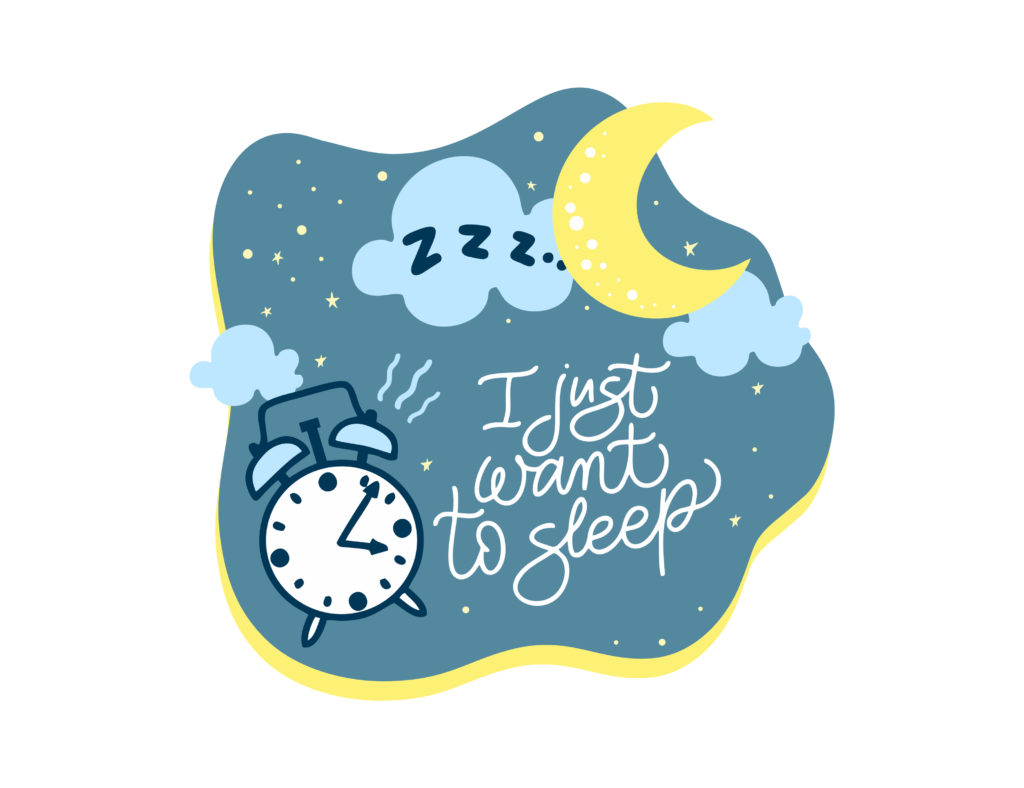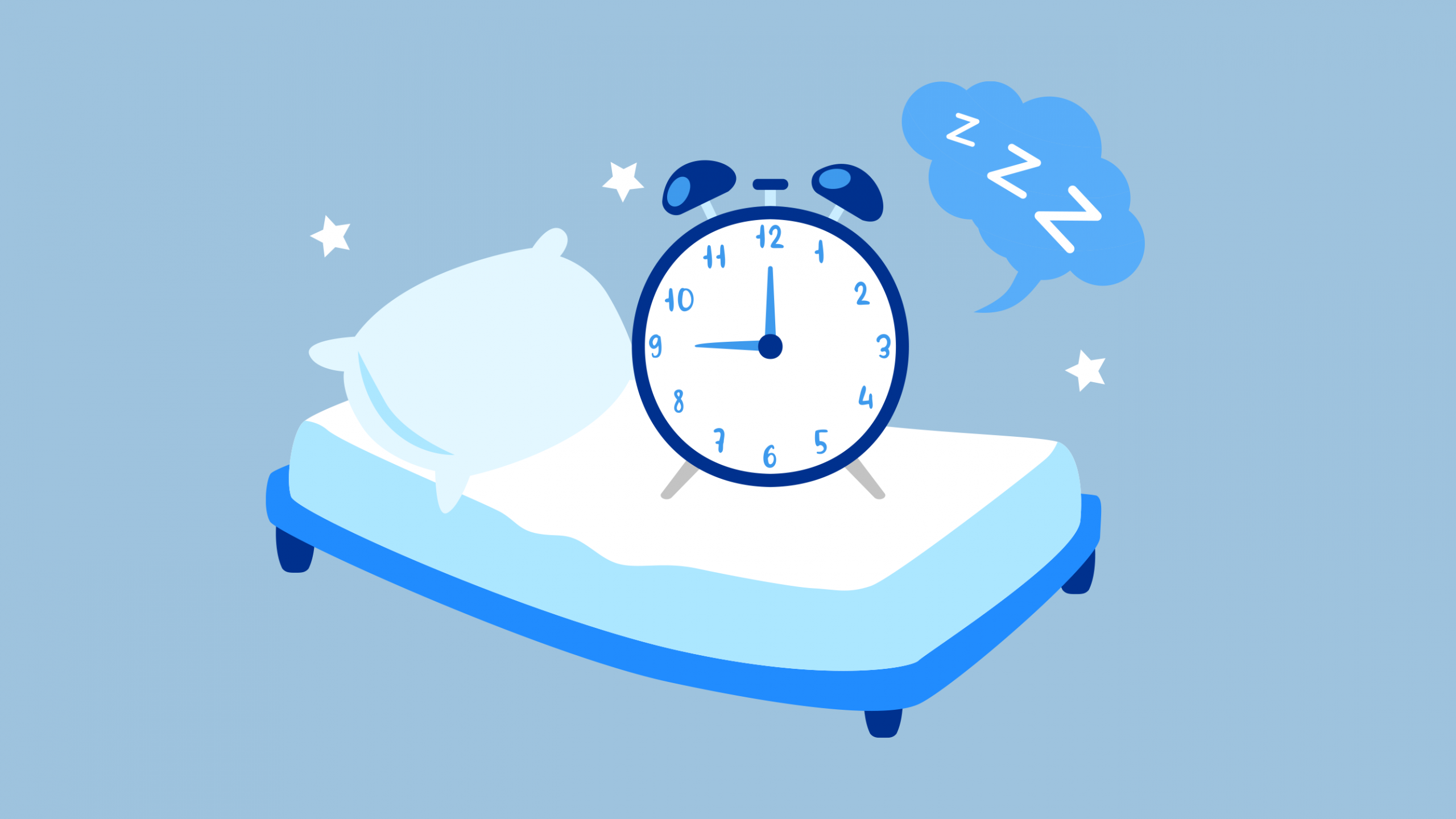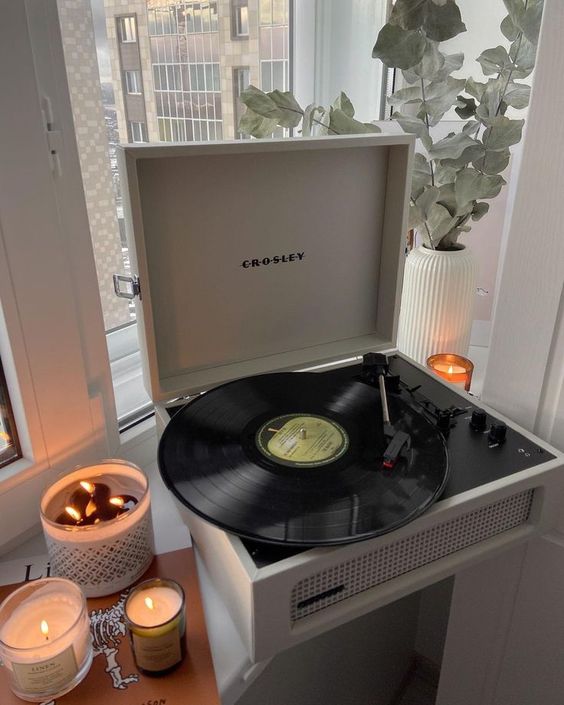6 Tips To Having A Healthier Bedtime Routine With Music – Do you struggle with getting a good night’s sleep? Do you find yourself tossing and turning throughout the night or waking up feeling unrested? If so, incorporating music into your bedtime routine may be just what you need.
Sleep is crucial to our overall health and well-being, yet many of us fail to get the recommended amount each night. In fact, according to a recent poll, approximately one-third of adults in the United States report not getting enough sleep.
Establishing a healthy bedtime routine that includes calming music can help improve the quality of your sleep, making it easier for you to drift off and stay asleep. Whether it’s listening to soothing nature sounds or instrumental tracks, music has been proven to have therapeutic effects on the mind and body before bed. In this article, we’ll share six tips for creating a healthier bedtime routine with music that will help you get the restful sleep you deserve.
Key Takeaways
- Incorporating music into your bedtime routine can improve the quality of sleep and promote relaxation, thereby enhancing overall well-being.
- Slow-paced, low-tempo instrumental music is recommended for inducing relaxation before sleeping.
- chronic sleep deprivation can lead to various negative health effects such as obesity, diabetes, and cognitive impairment.
Explanation of the importance of a healthy bedtime routine
Having a healthy bedtime routine is essential for a good night’s sleep and overall well-being. A consistent routine helps regulate the body’s internal clock, making it easier to fall asleep and wake up at the same time each day. It also promotes relaxation, reduces stress, and improves mood.
Creating a healthy bedtime routine can involve many things such as avoiding caffeine before bed, limiting screen time, and winding down with relaxing activities like reading or meditation. One effective way to enhance your bedtime routine is by incorporating music.
Music has been shown to have a calming effect on the mind and body, reducing heart rate and blood pressure. It can also help shift our focus away from daily stressors and promote feelings of comfort and security.
To incorporate music into your bedtime routine, try creating a playlist of calming tunes that you enjoy. Listen to it as you wind down for the evening or use it as background noise while you read or meditate. You could even try playing soft instrumental music while you sleep.
By incorporating music into your bedtime routine, you can improve your sleep quality and overall health. Give it a try tonight!
The role of music in promoting better sleep
Music has long been known for its ability to soothe the mind and body. In recent years, research has shown that music can also play an important role in promoting better sleep. Listening to calming music before bedtime can help reduce stress and anxiety, leading to a more restful night’s sleep.
One study found that listening to classical music before bed improved the quality of sleep in older adults with insomnia. Another study showed that calming music helped reduce symptoms of depression and anxiety in patients with chronic sleep disorders.
The key is to choose music that is slow-paced with a low tempo, as this type of music is more likely to induce relaxation. Instrumental music without lyrics is also recommended, as it reduces the chance of getting distracted by the words.
Incorporating music into your bedtime routine can be as simple as creating a playlist or using a sleep app that plays soothing sounds. So if you’re having trouble sleeping, give music a try and see how it can help you drift off into dreamland.
The Negative Effects of Poor Sleep Habits on Health
Poor sleep habits can have a significant impact on overall health and well-being. Lack of sleep can lead to a range of negative effects, both physical and mental.
Research has shown that chronic sleep deprivation can increase the risk of developing conditions such as obesity, diabetes, heart disease, and depression. Poor sleep habits have also been linked to impaired cognitive function, including memory loss and difficulty concentrating.
In addition to these health risks, poor sleep habits can also affect daily activities and performance. Individuals who don’t get enough sleep may experience fatigue, irritability, and a lack of motivation.
To combat the negative effects of poor sleep habits on health, it’s important to establish good bedtime routines. This includes setting a consistent bedtime and wake-up time, avoiding stimulating activities before bed (such as using electronic devices), and creating a comfortable sleeping environment.
By prioritizing quality sleep through healthy bedtime routines, individuals can improve their overall health and well-being.

Overview of how lack of sleep affects physical and mental health
Lack of sleep can have a significant impact on both physical and mental health. Chronic sleep deprivation has been linked to an increased risk of developing conditions such as obesity, diabetes, heart disease, and depression. It can also lead to impaired cognitive function, including memory loss and difficulty concentrating.
In addition to these health risks, poor sleep habits can affect daily activities and performance. Individuals who don’t get enough sleep may experience fatigue, irritability, and a lack of motivation.
It’s crucial to establish healthy bedtime routines to combat the negative effects of poor sleep habits on overall health and well-being. This includes setting a consistent bedtime and wake-up time, avoiding stimulating activities before bed (such as using electronic devices), and creating a comfortable sleeping environment.
Prioritizing quality sleep through healthy bedtime routines can improve physical and mental health outcomes for individuals.
The Benefits of Music in Promoting Sleep
Music has been shown to have a positive impact on sleep quality and can promote relaxation, making it an ideal addition to bedtime routines. Listening to calming music before bed can help reduce stress and anxiety, which are common factors that can interfere with falling asleep.
Research suggests that certain types of music, such as classical or slow-tempo instrumental music, can even slow down the heart rate and breathing patterns, promoting a more restful state. Music therapy has also been found to be effective in improving sleep quality for individuals with insomnia and other sleep disorders.
In addition to its relaxation benefits, incorporating music into bedtime routines can also create a sense of ritual and comfort. Listening to the same soothing songs or playlists each night can signal to the body that it’s time for rest.
Overall, adding music to a healthy bedtime routine can improve sleep quality and promote better physical and mental health outcomes. So why not try creating a calming playlist tonight?
Discussion on research findings that show how music promotes relaxation and better sleep quality
Studies have shown that music can help promote relaxation and improve the quality of sleep. Listening to calming music before bedtime can reduce stress and anxiety, which are common factors that make it difficult to fall asleep. Certain types of music, such as classical or slow-tempo instrumental music, have been found to slow down heart rate and breathing patterns, promoting a more restful state.
In addition to its relaxation benefits, incorporating music into bedtime routines can create a sense of ritual and comfort. Listening to the same soothing songs or playlists each night can signal to the body that it’s time for rest.
Music therapy has also been found to be effective in improving sleep quality for individuals with insomnia and other sleep disorders. Overall, adding music to a healthy bedtime routine can improve physical and mental health outcomes. Creating a calming playlist can be an easy way to incorporate music into your nightly routine and promote better sleep.

Tip 1: Creating a Relaxing Environment
Creating a relaxing environment is an essential step to having a healthier bedtime routine with music. Your sleeping space should be comfortable, quiet, and conducive to relaxation. Dimming the lights or using soft lighting can help create a calming atmosphere. You can also use aromatherapy with lavender or other calming scents to promote relaxation.
In addition, it’s important to limit distractions in the bedroom, such as electronics or clutter. These can disrupt your sleep and prevent you from fully relaxing. Instead, opt for soothing décor and comfortable bedding that will help you feel cozy and relaxed.
Once you have created a peaceful environment, you can begin incorporating music into your routine. Set aside sometime before bed to listen to calming melodies that will help slow down your mind and body. With a relaxing environment and soothing tunes, you’ll be well on your way to better sleep quality.
Importance of creating a comfortable and relaxing sleep environment
Creating a comfortable and relaxing sleep environment is crucial for getting a good night’s rest. A peaceful atmosphere can help reduce stress and anxiety, allowing you to fall asleep more easily. To achieve this, start by decluttering your sleeping space and removing any distractions that might keep you awake.
Next, focus on creating an ambiance that promotes relaxation. Soft lighting or dimming the lights can help set the mood, as can incorporating calming scents like lavender into your room. Additionally, invest in comfortable bedding and pillows to ensure that you feel cozy and relaxed.
By taking steps to create a calming environment before bed, you’ll be able to fall asleep faster and stay asleep longer. And with the addition of soothing music to your routine, you’ll be even more likely to get a restful night’s sleep. So take some time to prioritize your sleeping space – your mind and body will thank you for it!
Strategies to create a conducive environment, such as reducing noise and temperature regulation
Reducing noise and regulating temperature are two key strategies for creating a conducive sleep environment. Excessive noise can disturb your sleep and prevent you from getting the rest you need, so consider investing in earplugs or a white noise machine to block out any disruptive sounds.
In addition, regulating the temperature of your sleeping space can also promote better sleep. A cooler room can help you fall asleep faster and stay asleep longer, so try lowering the thermostat a few degrees before bed. You can also invest in breathable bedding materials that will help regulate your body temperature throughout the night.
By prioritizing these simple steps, you’ll be able to create a more comfortable and relaxing sleep environment that will help you get the restful night’s sleep that you need to feel energized and refreshed in the morning. So give it a try – your mind and body will thank you!
Using Music to Create A Calming Atmosphere
Music can be a powerful tool for creating a calming atmosphere that promotes restful sleep. By choosing the right music, you can help your mind and body relax and unwind, making it easier to fall asleep and stay asleep throughout the night.
One key strategy is to choose music with a slow tempo and minimal lyrics, as this can help slow down your heart rate and breathing, promoting relaxation. Soothing nature sounds like rainfall or ocean waves can also be effective in creating a peaceful environment.
Another tip is to create a playlist specifically for bedtime so that your mind begins to associate certain songs or sounds with sleep. This can help signal to your brain that it’s time to wind down and prepare for rest.
Finally, consider investing in a sleep mask or comfortable headphones if you’re sharing a sleeping space with someone else. These tools can help block out any distracting light or noise, allowing you to fully immerse yourself in the calming effects of the music.
By incorporating these simple strategies into your bedtime routine, you’ll be able to use music as an effective tool for creating a calm and relaxing atmosphere that promotes restful sleep.
Explanation of how different genres of music help relax individuals before bed
Different genres of music can have different effects on individuals when it comes to relaxation before bedtime. Classical music, for example, is often recommended for its soothing melodies and slower tempo. It can help reduce stress and promote relaxation, making it easier to fall asleep.
Ambient or electronic music can also be effective in creating a calming environment, as it often features repetitive sounds and minimal lyrics. This type of music can help lull the mind into a state of relaxation, reducing anxiety and promoting restful sleep.
Nature sounds, such as bird songs or rustling leaves, can also be beneficial for relaxation before bed. They evoke feelings of tranquility and calmness that can help ease the mind and prepare the body for sleep.
Ultimately, the best genre of music for relaxation before bed will vary from person to person. It’s important to experiment with different types of music to find what works best for you and your individual needs. With the right soundscape in place, you’ll be able to create a peaceful environment that promotes restful sleep night after night.

Tips on selecting the right kind of music for optimal relaxation
When it comes to selecting music for optimal relaxation before bedtime, there are a few tips to keep in mind. First, consider the tempo and rhythm of the music. Slower tempos and steady rhythms can help slow down your heart rate and breathing, promoting relaxation.
Next, think about the lyrics of the music. Avoid songs with lyrics that are too upbeat or stimulating, as they can keep your mind active and prevent you from falling asleep. Instead, opt for instrumental or ambient music that focuses on soothing sounds rather than vocals.
Additionally, try incorporating nature sounds into your bedtime routine. The sound of rain or waves crashing can be particularly calming and help create a peaceful environment for sleep.
Finally, experiment with different genres of music to find what works best for you. Classical music may work wonders for one person, while someone else may find that electronic or jazz music helps them unwind.
By taking these factors into consideration and finding the right type of music for your individual needs, you can create a relaxing bedtime routine that promotes restful sleep night after night.
Tip 2: Develop a Consistent Bedtime Routine
Tip 2: Develop a Consistent Bedtime Routine
Developing a consistent bedtime routine is crucial for a good night’s sleep. Our bodies thrive on routine and having a set schedule can help regulate our internal clock and improve the quality of our sleep.
Start by setting a regular bedtime and stick to it as much as possible, even on weekends. This will help train your body to naturally feel tired at the same time every night.
Create a relaxing pre-sleep ritual that you enjoy, such as reading a book or taking a warm bath. Avoid stimulating activities like using electronic devices or watching TV before bed, as they can interfere with your ability to fall asleep.
If you have trouble winding down, try incorporating calming activities into your routine, such as meditation or gentle stretching.
By developing a consistent bedtime routine, you can create an environment that supports restful sleep and sets you up for success in the morning.
See also
Importance of sticking to the same bedtime every day
Sticking to the same bedtime every day is crucial for a good night’s sleep. Our bodies thrive on routine and having a consistent bedtime can help regulate our internal clock and improve the quality of our sleep.
When we go to bed at different times each night, it can throw off our body’s natural rhythm, making it harder to fall asleep and stay asleep. This can lead to feelings of fatigue, irritability, and difficulty concentrating during the day.
By setting a regular bedtime and sticking to it as much as possible, even on weekends, we can train our bodies to naturally feel tired at the same time every night. This helps us fall asleep faster and stay asleep longer.
So if you want to improve your sleep quality and wake up feeling refreshed each morning, try sticking to the same bedtime every day. Your body will thank you for it!
Description of regular activities that can be incorporated into a bedtime routine
Incorporating regular activities into your bedtime routine can help signal to your body that it’s time to wind down and prepare for sleep. Here are some ideas:
1. Listen to calming music: Music can be a great way to relax and unwind before bed. Choose something soothing and low-key, like classical or ambient music.
2. Practice relaxation techniques: Deep breathing, meditation, or gentle yoga stretches can help calm your mind and prepare you for sleep.
3. Read a book: Reading a book (preferably not on an electronic device) can help you disconnect from screens and ease into a restful state.
4. Take a warm bath or shower: The warmth of the water can help relax tense muscles and promote relaxation.
5. Write in a journal: Jotting down your thoughts or reflecting on your day can help clear your mind before bed.
6. Avoid screens: Blue light from electronic devices can interfere with the production of melatonin, the hormone that regulates sleep-wake cycles. Try to avoid screens for at least 30 minutes before bed.
Incorporating Music into Your Routine
Incorporating music into your bedtime routine can be a great way to promote relaxation and improve the quality of your sleep. Start by choosing calming music that you enjoy, such as classical or ambient tracks. You can listen to music while doing other relaxing activities, like taking a warm bath or practicing relaxation techniques.
One idea is to create a playlist specifically for bedtime and incorporate it into your routine every night. This will signal to your body that it’s time to wind down and prepare for sleep. Avoid listening to music with lyrics or energetic beats, as this can have the opposite effect and keep you awake.
Another option is to use white noise or nature sounds, which have been shown to promote relaxation and improve sleep quality. Experiment with different types of music and sounds until you find what works best for you.
Overall, incorporating music into your bedtime routine is an easy and enjoyable way to improve the quality of your sleep. So plug in those earbuds, press play on your favorite playlist, and drift off into dreamland!
Examples of how different types and genres of music can be used during pre-bedtime routines.
Different types and genres of music can be used during pre-bedtime routines to promote relaxation and improve the overall quality of sleep. Classical music, for example, has been shown to have a calming effect on the body and mind. Ambient tracks with soothing sounds like water or nature can also help you relax.
If you prefer something more upbeat, try listening to instrumental jazz or soft rock. These genres can still provide a relaxing atmosphere without putting you to sleep too quickly.
Another option is to use guided meditation or yoga music which incorporates calming melodies with spoken instructions to help your mind and body unwind.
Ultimately, the key is to find what works best for you. Experiment with different types of music until you discover the perfect playlist that helps you wind down at night and drift off into peaceful slumber.
Tip 3: Avoid Stimulating Activities Before Bedtime
Tip 3: Avoid Stimulating Activities Before Bedtime
It’s important to avoid stimulating activities before bedtime to promote a healthier sleep routine. This includes avoiding screen time on electronic devices such as phones, tablets, and computers. The blue light emitted from these devices can suppress melatonin production, making it harder for you to fall asleep.
Additionally, engaging in physical activities or intense exercise before bed can also increase your heart rate and make it difficult to relax.
Instead, try reading a book or practicing gentle stretching exercises like yoga or tai chi. These activities can help calm your mind and body and prepare you for a restful night’s sleep.
Overall, it’s important to create a relaxing environment before bedtime by avoiding stimulating activities that can interfere with your ability to fall asleep. By making simple changes to your pre-bedtime routine, you can improve the quality of your sleep and wake up feeling refreshed and energized.
Explanation of why it’s important to avoid stimulating activities before bed.
Avoiding stimulating activities before bed is crucial to promote a healthy sleep routine. Engaging in activities that can increase heart rate or stimulate the brain can make it harder for individuals to fall asleep. This includes screen time on electronic devices like phones, tablets, and computers which emit blue light that can suppress melatonin production.
Instead of intense physical activities or screen time, individuals should opt for calming activities like reading a book or practicing gentle stretching exercises. These activities can help calm the mind and body and prepare for a restful night’s sleep.
Creating a relaxing environment before bedtime is essential for improving the quality of sleep and waking up feeling refreshed and energized. By making simple changes to pre-bedtime routines, individuals can ensure they get enough sleep every night. Adequate sleep is necessary for overall health, including mental well-being, memory function, and managing stress levels.

Listing some examples like watching TV or playing video games.
Watching TV or playing video games are common activities that people engage in before bed. However, these activities can be detrimental to a healthy sleep routine. The blue light emitted from electronic devices can interfere with the body’s natural production of melatonin, making it harder to fall asleep.
Furthermore, these activities can be mentally stimulating and keep the brain active, making it harder to relax and unwind. Instead of staring at a screen before bed, individuals should opt for calming activities like listening to music.
Music has been shown to have a relaxing effect on the mind and body. Slow-tempo music can help slow down breathing and lower heart rate, leading to a more restful night’s sleep. Creating a bedtime playlist with soothing songs can be an excellent way to wind down after a long day.
Incorporating music into pre-bedtime routines is just one-way individuals can promote a healthier sleep routine. By avoiding stimulating activities like watching TV or playing video games and engaging in calming activities like listening to music, individuals can improve their overall well-being and wake up feeling refreshed every morning.
Final Thoughts
Incorporating music into your pre-bedtime routine can be a great way to promote a healthy sleep routine. However, it’s important to remember that everyone is different, and what works for one person may not work for another.
Experiment with different types of music and find what works best for you. Some people may prefer slow-tempo instrumental music, while others may find comfort in nature sounds or white noise. Whatever your preference, make sure to create a calming environment by avoiding stimulating activities before bed.














Leave a Reply